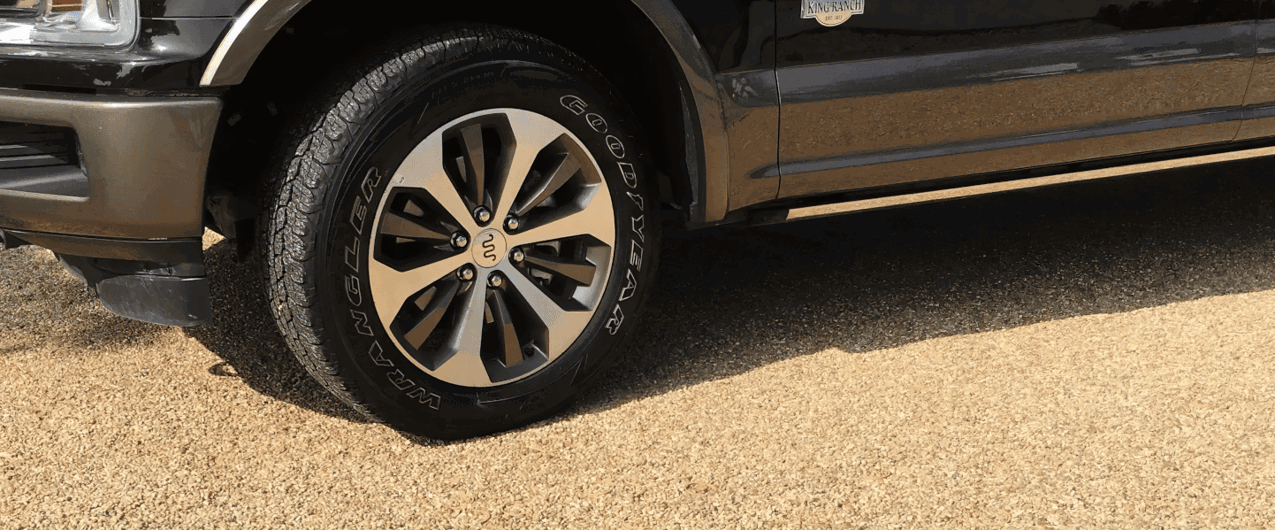Permeable pavers are a popular choice for those seeking versatile, eco-friendly and cost-efficient paving options. For those new to what permeable pavers are, they are pavement solutions that allow water to seep through the surface and into the ground below. These paving systems are increasingly used in various settings, from fire lanes and parking lots to gardens and urban landscapes, including rain and water gardens.
Among the permeable pavers available in the marketplace, plastic porous pavers, such as Grasspave2 and Gravelpave2 from Invisible Structures, are a modern, high-performance alternative to concrete paver blocks and porous concrete or asphalt pavements. Their innovative ring-on-grid design creates 92 percent void space, which can be filled with grass or gravel, seamlessly blending aesthetics with functionality. This unique configuration not only maximizes drainage efficiency, preventing waterlogging and runoff, but also significantly enhances the overall benefits of permeable paving systems, making them a smart and sustainable choice.
Permeable pavers effectively manage stormwater
The ability to manage stormwater effectively is perhaps the most important benefit of permeable pavers. Traditional paving made of asphalt and concrete creates impervious surfaces where rainwater runs off quickly, often overwhelming storm drains and contributing to water pollution. Permeable paving, on the other hand, has void spaces that allow rainwater to be absorbed on-site, filtering it naturally and reducing the load on stormwater systems.
Flexible plastic porous pavers take this a step further with nearly three times the void spaces compared to other permeable options. This capability enables a drainage rate of up to 38.5 inches of water per square foot per hour, which translates to more runoff penetrating the ground. In doing so, flexible, porous plastic pavers significantly reduce the risk of flood-related damage to life and property.
Cooling urban areas and capturing carbon
Permeable pavers also offer environmental benefits in multiple ways. For instance, they play a vital role in mitigating the urban heat island effect. In cities, impermeable surfaces made of concrete and asphalt absorb and retain heat, leading to up to seven degrees Fahrenheit higher temperatures than surrounding areas during the day according to the U.S. Environmental Protection Agency (EPA).
Because flexible porous pavers from Invisible Structures have up to 92 percent void spaces, they absorb less heat, resulting in cooler urban surroundings. When porous pavers like Grasspave2 are filled with vegetation, the system further cools the environment through the process of transpiration (that is when plants release water vapor into the atmosphere through their leaves).
In addition to mitigating urban heat island effect, the vegetation’s roots capture and store atmospheric carbon dioxide, also known as carbon sequestration. This process, over time, not only enhances soil health but also contributes to the fight against climate change.

Flexible, plastic porous pavers require minimal maintenance
Despite being aware of the benefits of plastic porous pavers, some may still hesitate to invest in permeable pavers because of the complicated answers to how to maintain permeable pavers. Yes, permeable pavers like concrete blocks may require regular power washing to prevent clogging. But maintenance needs vary depending on the type of paver.
Advanced flexible plastic porous pavers solution, Grasspave2 and Gravelpave2, require minimal upkeep. With 92 percent void spaces, these pavers are designed to prevent clogging. With a high compressive strength of 2,295,000 psf, porous pavers by Invisible Structures are well suitable for parking lots, fire lanes, landscaping areas, walkways and more. In most applications, maintenance typically involves nothing more than occasional gravel brushing in high-traffic areas—perhaps once every six months.
Even during winters, when alternative permeable pavers may require additional maintenance to deice and prevent clogging, Grasspave2 and Gravelpave2 are easy to maintain. In fact, while concrete pavers can crack or warp due to freeze-thaw cycles, Invisible Structures’ porous pavers have never required replacement due to issues caused by colder weather.
So, are permeable pavers worth it?
If you’re considering flexible plastic porous pavers, the answer is a resounding yes! Permeable paving solutions like porous pavers from Invisible Structures, are an excellent investment for anyone looking to implement sustainable stormwater management practices. Their excellent drainage rates reduce the need for complex drainage systems, support healthy vegetation and lower the risk of flood-related damage to infrastructure, life and landscape.
For professionals seeking to provide efficient water management solutions to their clients, Invisible Structures offers a range of porous paving and stormwater management products. Explore our offerings today.
